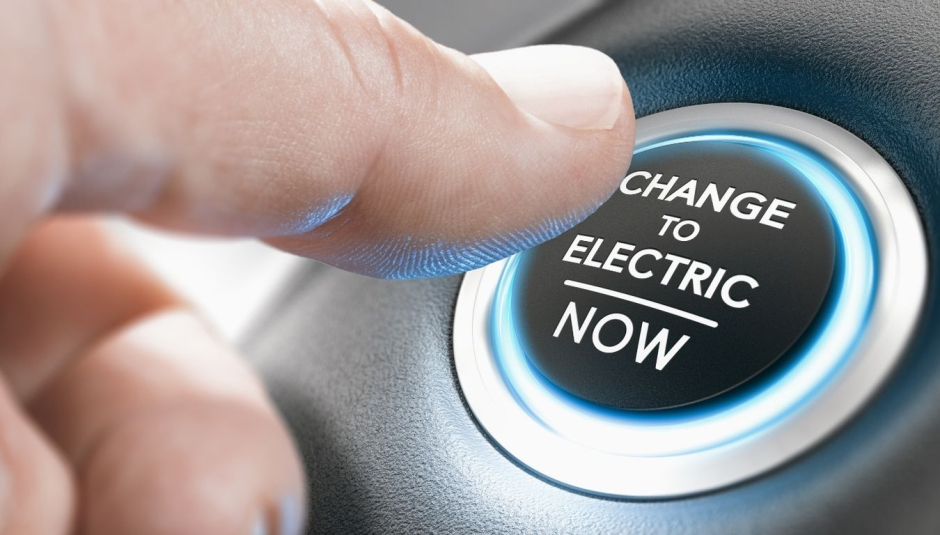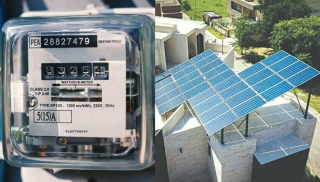ISLAMABAD: The Pakistani government unveiled its New Energy Vehicle (NEV) strategy on Wednesday, despite concerns voiced by influential groups, with the goal of converting 30% of all new vehicles in the country, both imported and domestically produced ones, to electric power by 2030.
At a press conference, Rana Tanveer Hussain, minister of industries and production, revealed the steps, asserting that all relevant parties had been involved in formulating the policies.
The Pakistan Automotive Manufacturers Association (PAMA) released a statement shortly after his speech expressing serious concerns about the new policy’s possible effects on the country’s automotive sector.
Government Announces Subsidies for Electric Vehicles and Motorbikes
Electric vehicles (EVs) and other new energy sources, such as hydrogen, are part of the new policy. The minister announced that the government has allocated a total of four billion rupees (about $US9,100) to subsidize electric motorbikes at a rate of Rs50,000 and three-wheelers (rickshaws) at a rate of Rs200,000. The allocation of these subsidies will be done via auctions. Two businesses have received licenses thus far, with thirty-one more applications for approval.
Mr. Hussain stated that the NEV policy’s tax exemptions and subsidies were approved by the International Monetary Fund (IMF). He went on to say that switching to EVs would help Pakistan cut back on pollution and its reliance on expensive imported petroleum products.
Financing is accessible at a 3 percent Kibor (Karachi Interbank Offered Rate), and the government is covering the financial cost. The policy also includes a reduction in the policy rate from 22% to 15%. Installments for consumers will be roughly Rs9,000 per month for two years, which is less than the amount they anticipate saving on petrol.
There will be no cost to either the Ministry of Industries or the consumers as a result of a Credit Loss Guarantee overseen by the Finance Division.
In addition, 120 students who have excelled academically will receive free electric bikes or scooters, and tariffs on EV components will be reduced to promote local manufacturing. In addition, a New Energy Vehicle Centre and a New Energy Fund will be set up by the government to back these initiatives.
Dewan Motors is preparing to introduce its electric vehicles under the entirely knocked down (CKD) license, while BYD Group, a prominent Chinese EV producer, has also secured a manufacturing license in Pakistan.
PAMA Raises Key Concerns in the Industry
In a letter to the Engineering Development Board (EDB), the PAMA expressed several concerns about the NEV policy. They warned that allowing the import of fully constructed units (CBUs) at a lower duty rate than CKDs could be bad for the local industry.
According to SRO 656 and PAMA Director General Abdul Waheed Khan, businesses should only be able to import CBUs if they have a minimum number of local manufacturing facilities. This would keep the scrapyard from becoming too big and keep customers from needing support after the sale.
The PAMA also said that the current policy for hybrid electric vehicles (HEVs) and plug-in hybrid electric vehicles (PHEVs) should stay in place until 2030. If PHEVs get any more benefits, they should also be given to HEVs.
From the third year on, it was suggested that taxes and incentives for NEVs should be the same as those for other cars. PAMA wanted to make sure that Pakistan’s auto industry would grow in the long run by requiring CBU importers to set up local factories within a certain time frame.
It also suggested that taxes and incentives for NEVs should be the same as those for cars with petrol, diesel, or natural gas engines, with rewards ending by 2030. The group also suggested that green energy vehicles, like biogas-powered cars, be added to the NEV policy and that policies for HEVs and PHEVs stay the same.
Promoting the Shift to Electric Vehicles
Abdul Aleem Khan, Minister for Communications and Privatisation, who is at COP29 right now, said that work has already started to promote electric vehicles (EVs) in Pakistan.
During the Ministerial Roundtable Session, he said that projects like Green Urban Transport, Electric Vehicles, and Renewable Energy were necessary to deal with future problems like more people living in cities and more pollution in the air.
According to Mr. Khan, work is being done to build 3,000 charging stations by 2030. This is a big step towards changing the car industry in Pakistan for the better. Electric vehicles will be more inexpensive for consumers as a result of reduced power tariffs at charging stations, he noted.
A minister said that Karachi’s first fleet of biomethane hybrid buses would save 100% of the fuel used by regular buses. The minister also said that the National Green Transport Project could have a public-private relationship.












